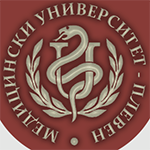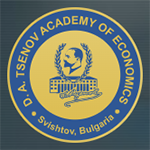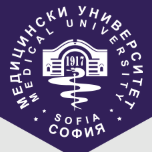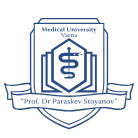Introduction to Bulgarian University of Chemical Technology and Metallurgy
I. Introduction and Overview
The Bulgarian University of Chemical Technology and Metallurgy is one of the top universities of science and engineering in Bulgaria. It focuses on education and research in the fields of chemical technology, metallurgical engineering, etc., and plays an important role in Bulgaria's industrial development and scientific and technological innovation. The school is located in Sofia, the capital of Bulgaria, and provides students with rich academic resources and practical opportunities.
II. History and Establishment
The school was founded in 1904 and was originally named "Sofia Institute of Chemistry". Over the past 100 years, the school has undergone many developments and changes, and has continuously adjusted its subject settings and teaching models to meet the needs of social and industrial development. In 1962, it was officially renamed "Bulgarian University of Chemical Technology and Metallurgy" and became the core institution of higher education in the field of chemistry and metallurgy in Bulgaria.
III. School Strength
Faculty: It has a team of highly qualified teachers, including many experts and scholars with international influence in the fields of chemistry, metallurgy, and materials science. They are not only experienced in teaching, but also actively participate in scientific research projects to promote the development of disciplines.
Scientific research achievements: Many scientific research achievements have been made in the fields of chemical engineering, metallurgical technology, materials science, etc. The school's research institutions work closely with domestic and foreign enterprises to transform scientific research results into actual productivity, making important contributions to Bulgaria's industrial development.
International cooperation: It has established extensive cooperative relations with many well-known universities and research institutions around the world, and carried out projects such as student exchange, teacher visits, and joint scientific research. Through international cooperation, the school continues to improve its academic level and international influence.
IV. Nature of institutions
A public university, funded by the Bulgarian government, is committed to cultivating excellent chemical technology and metallurgical engineering talents for the country.
V. Educational philosophy
The school's educational philosophy is to cultivate high-quality talents with solid professional knowledge, innovation ability and practical skills. Focus on the combination of theory and practice, encourage students to participate in scientific research projects and corporate internships, and cultivate students' ability to solve practical problems. At the same time, it emphasizes the cultivation of students' teamwork spirit and international vision, so that they can adapt to the development trend of globalization.
VI. Key laboratories and disciplines
Key laboratories: It has a number of advanced laboratories, such as chemical engineering laboratories, metallurgical process simulation laboratories, and material research laboratories. These laboratories are equipped with first-class experimental equipment, providing good conditions for students and teachers' scientific research work.
Key disciplines: Chemical Engineering, Metallurgical Engineering, Materials Science and Engineering, Environmental Science and Engineering and other disciplines are the school's advantageous disciplines. In these disciplines, the school has strong faculty and advanced teaching and research facilities, and has trained a large number of outstanding professionals.
VII. Faculty
The school has several colleges, including the School of Chemical Engineering, the School of Metallurgy and Materials, the School of Environmental and Bioengineering, the School of Food Science and Technology, the School of Basic Sciences, etc. Each college provides education at the undergraduate, master and doctoral levels, covering multiple professional fields.
VIII. Ranking
It ranks among the top universities in Bulgaria and is in a leading position in the fields of chemical engineering and metallurgical engineering. Internationally, although it has not entered the forefront of the global comprehensive ranking, it has a certain influence in the professional rankings in the fields of chemical technology and metallurgy.
IX. Cost
The tuition fee is relatively reasonable. For Bulgarian students, the tuition fee is subsidized by the government and is relatively low. The tuition fee for international students varies according to different majors and degree levels. Generally, the annual tuition fee for undergraduate students is around 3,000-6,000 euros, and the master's degree is slightly higher.
10. Campus Environment
Geographic location: Located in Sofia, the capital of Bulgaria, with convenient transportation and abundant cultural and commercial facilities around. Students can easily access various academic resources and cultural activities.
Campus facilities: The campus has modern teaching buildings, laboratories, libraries, student dormitories and other facilities. The library has a rich collection of books, covering books and journals in multiple disciplines such as chemistry, metallurgy, and materials. The student dormitories provide students with a comfortable living environment. At the same time, the campus also has canteens, gymnasiums and other living and entertainment facilities to meet the daily needs of students.
-

Medical University-Pleven
-

Trakia University
-

Burgas Prof. Assen Zlatarov University
-

Varna University of Management
-

D. A. Tsenov Academy of Economics
-

Technical University - Sofia
-

Medical University of Sofia
-

Plovdiv University
-

Sofia University
-

Medical University-Varna
-

Mesoamerican University
-

Istmo University
-

Mariano Galvez University of Guatemala
-

Regional University of Guatemala
-

Galileo University
-

Francisco Marroquín University
-

Rafael Landívar University
-

University of the Valley of Guatemala
-

University of San Carlos of Guatemala
-

Technological Institute of Tlaxcala Plateau
-

Golfo University
-

Technological University of South Sonora
-

Technological University of Huejotzingo
-

Tizimín Institute of Technology
-

Chilpancingo Institute of Technology

